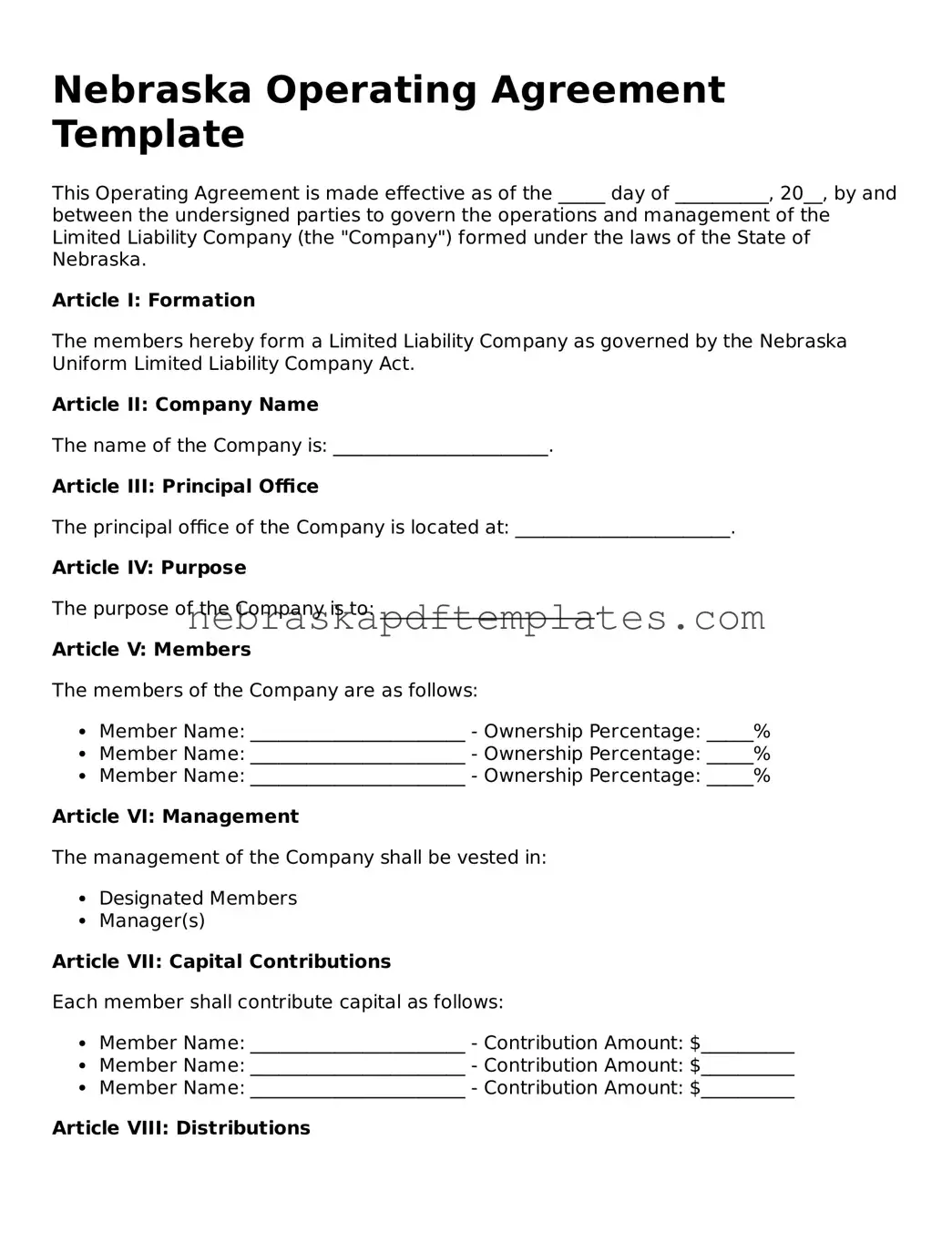Attorney-Verified Operating Agreement Document for Nebraska
The Nebraska Operating Agreement form is a crucial document that outlines the management structure and operational procedures of a limited liability company (LLC) in Nebraska. This agreement serves as a foundational guideline for members, detailing their rights, responsibilities, and the overall governance of the business. Understanding and completing this form is essential for ensuring compliance and facilitating smooth operations within the LLC.
To get started on your Nebraska Operating Agreement, click the button below to fill out the form.
Access Editor Here

Attorney-Verified Operating Agreement Document for Nebraska
Access Editor Here
Finish your form now
Finalize Operating Agreement online — edit, save, and download effortlessly.
Access Editor Here
or
➤ Operating Agreement
